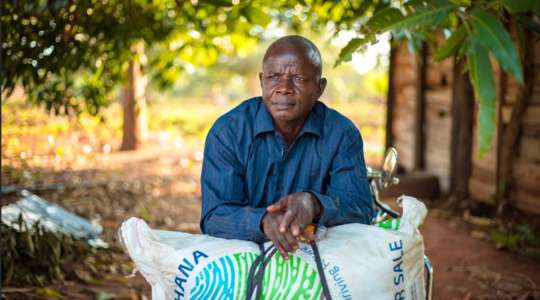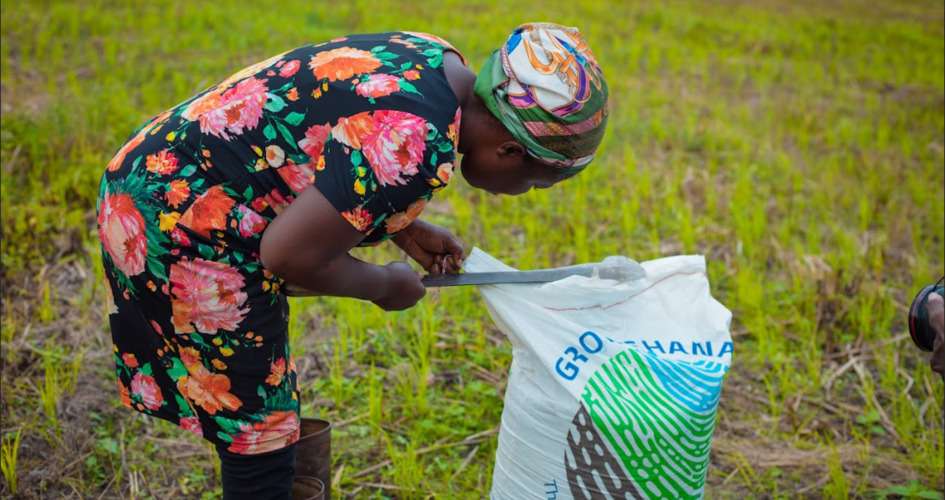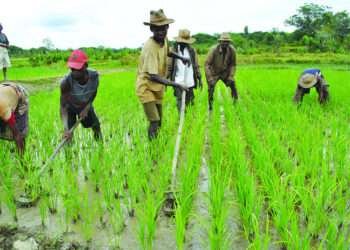After enduring severe disruptions in the fertilizer supply chain due to COVID-19, Ghana may witness a potential sign of relief with anticipated decreases in global fertilizer prices.
The World Bank’s April 2024 Commodity Market Outlook indicates a significant decline in fertilizer prices, influenced by improved production and export restrictions, notably from China.
According to the report, fertilizer prices dropped by 20 percent in the first quarter of 2024 compared to the previous quarter, and nearly 30 percent lower than a year ago. This decline was primarily attributed to increased production and lower feedstock costs.
The latest report from the World Bank unveiled a notable downward trend in global fertilizer prices during early 2024, continuing a decline that commenced in the previous year.
Fertilizer affordability, as measured by the ratio of fertilizer prices to food prices, has returned to its average level from 2015 to 2019, signaling improved accessibility for agricultural producers.
“Prices are expected to weaken further in 2024 and 2025 but remain above 2015-19 levels due to robust demand and export restrictions, notably from China to reduce domestic prices, providing support.”
World Bank’s April 2024 Commodity Market Outlook
Specifically, nitrogen-based fertilizer prices, including urea, saw a 12 percent decline in the first quarter of 2024 compared to the previous quarter, with a nearly 10 percent drop from the previous year.
This reduction is linked to plummeting prices of key feedstocks like natural gas and coal, which were approximately half their levels from a year earlier during the first quarter.
Despite a contraction in nitrogen-based fertilizer consumption in 2023, the sector is projected to rebound as production recovers in Europe and new capacity comes online globally. The report forecasts a further decline in urea prices by 2 percent in 2024 and 7 percent in 2025 due to these factors.
Conversely, Diammonium Phosphate (DAP) prices experienced a 10 percent increase in the first quarter of 2024 compared to the previous quarter but remained 3 percent lower than a year earlier.
This rise was influenced by policies such as export restrictions on phosphate and ammonia, leading to altered trade flows and increased prices.
The report highlighted Europe’s shift in imports from China and Russia to other exporters like Egypt, Morocco, Saudi Arabia, and the United States due to trade disruptions.
However, this redirection caused an increase in DAP prices by 9 percent in 2024, with expectations of a decline as supplies recover and new capacity emerges in 2025.
Looking ahead, the World Bank cautioned that the fertilizer market remains susceptible to fluctuations in input costs, particularly natural gas, and trade policy disruptions.
“Upside risks to the forecast include shocks to the costs of inputs, especially natural gas, while the resumption of China’s exports could contribute to lower prices.”
World Bank’s April 2024 Commodity Market Outlook
Short and Long-Term Strategies

Based on the World Bank’s report, Ghana can use some of these strategies to benefit from the expected decline in fertilizer prices.
First, Ghana can consider building a strategic reserve of fertilizers, particularly nitrogen-based ones like urea, which are projected to see the biggest price drops.
This buffer stock can be used during potential future price hikes or supply chain disruptions.
Also, it can negotiate bulk purchases with fertilizer producers or suppliers when prices are at their lowest. This can lead to significant cost savings, especially for staple crops like cocoa or maize.
While the current price decrease might not be the ideal time for immediate investment, Ghana can explore long-term strategies to boost domestic fertilizer production.
This can reduce reliance on imports and provide more control over fertilizer prices in the future.
The report highlighted the continued susceptibility of the market to fluctuations so Ghana should monitor trade policies, particularly those of major exporters like China.
A potential resumption of Chinese exports could lead to further price drops.
By implementing these strategies, Ghana can position itself to take advantage of the anticipated decrease in fertilizer prices, potentially boosting agricultural productivity and improving food security.
READ ALSO: Joyce Dzidzor Discloses Her Readiness For Making Music





















